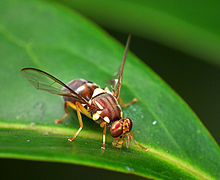There is a diverse range of factors that contribute to addiction. Genetics, mental health disorders, and receiving a prescription for a painkiller are all related to substance abuse. Social experiences also play an important role. For some unfortunate individuals, the consequences can be devastating.
Getting an Early Start
Addicted individuals walk unique paths to recovery, but many have shared experiences that led to substance abuse. One common theme is using drugs at an early age. Individuals who abuse alcohol or drugs in early adolescence are far more likely to develop addiction later on. Older adolescents may look like adults, but their brains are still maturing. The result of using early is the brain develops a strong connection between feeling good and getting high or drunk. This pattern is difficult — but not impossible — to break.
Social Isolation
Close relationships with friends and family members form the foundation of a successful social life. Without these relationships, individuals can find themselves isolated and depressed. Needing an outlet, the isolated individual might turn to alcohol, drugs, or another compulsive behavior to feel good. This experience may be enhanced if the substance or activity results in more active socialization. The result is a cycle of depression and abuse that can be difficult to break. When using relieves the stress of loneliness or increases popularity, it can lead to addiction.
Insect Research Leads to Sexual Rejection Discovery
It is known that negative social experiences are some of the most common triggers that may lead to addiction. A recent study involving fruit flies conducted by scientists from the University of California reveals more information on the matter. It was observed that male fruit flies rejected sexually by females have a greater tendency to consume alcohol than those that were able to successfully mate. A specific brain molecule in these insects, called neuropeptide F, was identified as the link between the negative experience and the resulting behavior. During the experiment, one group of male fruit flies was placed with a set of virgin female flies, while another was mixed with a female set that had already mated. Female fruit flies lose their sex drive after mating. The two male groups were then presented with two types of food, one plain and one containing 15% alcohol. The second male group, which was naturally rejected, went for the alcohol-laced food. The levels of neuropeptide F in the male flies were measured. The significant difference in quantity between the two groups led to the conclusion this molecule was the key factor that determined reward-seeking behavior. A similar functioning molecule, called neuropeptide Y, exists in human brains. The study points to this as the biochemical switch that connects social experience with psychological states. This new knowledge is certainly a major contribution that can increase our understanding of human addiction. Perhaps future applications based on such findings will be devised and incorporated in drug rehab programs that offer multiple methods of treatment. Among those that would particularly benefit would be the dedicated doctors and therapists of drug rehab facilities. Research such as this lays down the path for development of new techniques that would better help those that suffer addiction find their own path to recovery. (Photo via)

